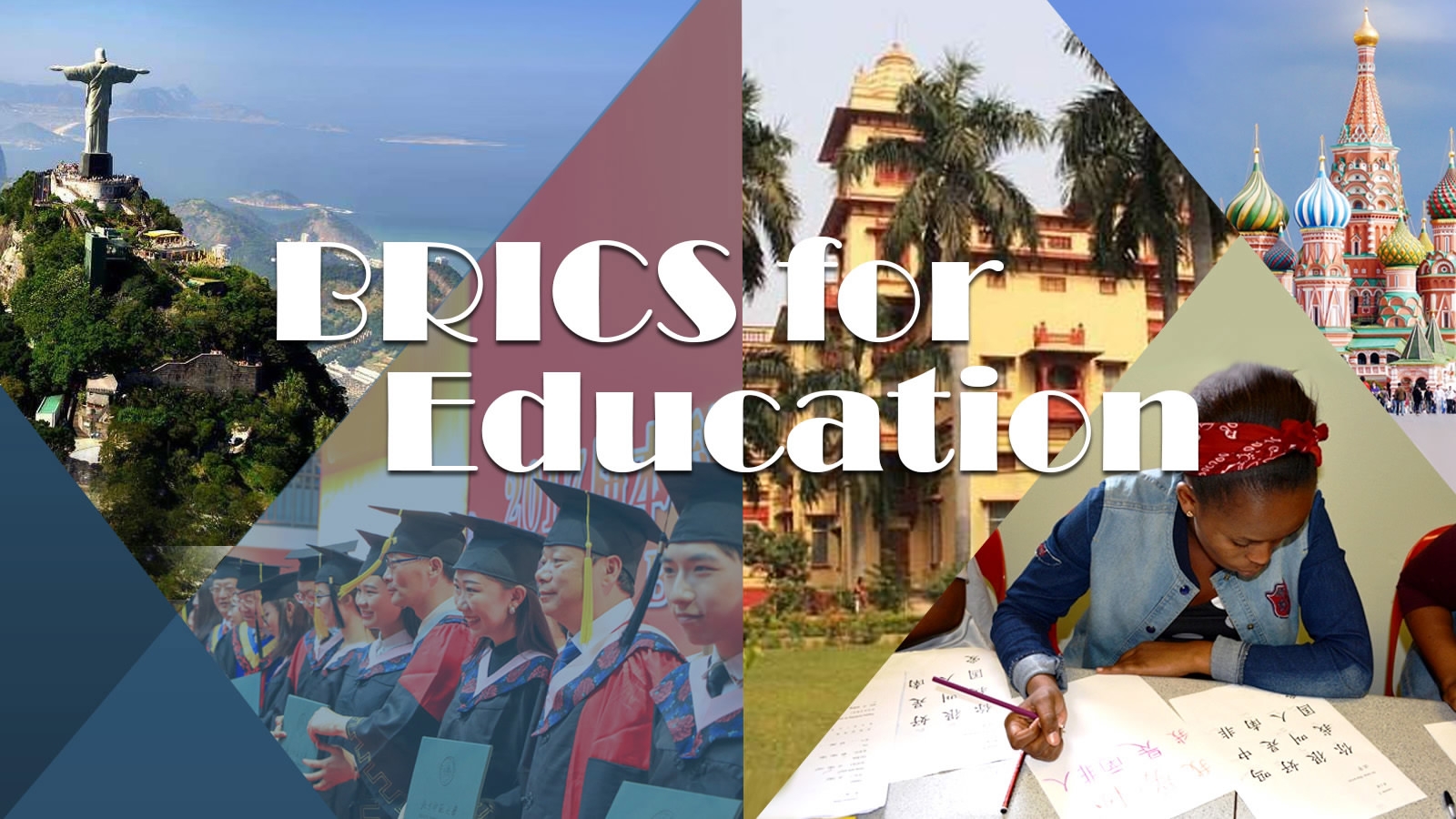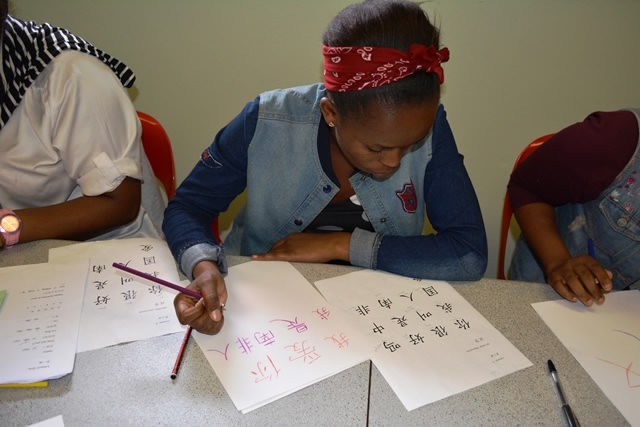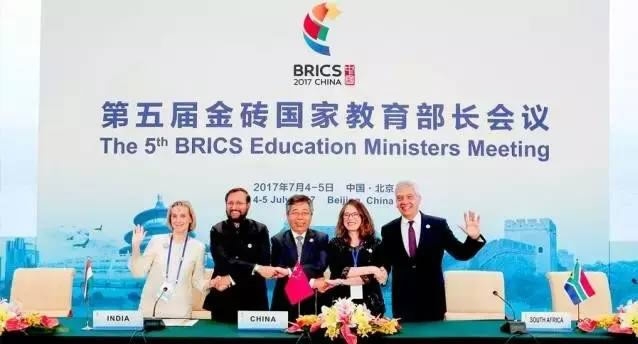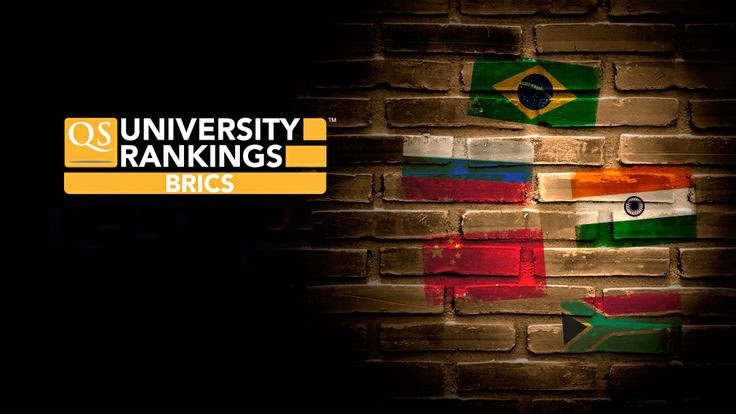
Culture
15:16, 31-Aug-2017
BRICS: Better education for better development
By Li Bin

While the majority of people are looking forward to the economic benefits from the upcoming BRICS summit, South African Wilma Hugo's focus is different.
She hopes the relationship between China and other BRICS countries can be strengthened in the education field.
Culture exchange
The 27-year-old is studying Chinese in Xiamen, east China's Fujian Province. Her plan after graduation is to go back to South Africa and become a Chinese language teacher.
A fan of Chinese characters and ancient Chinese series, Hugo said she is lucky to benefit from an educational agreement in which China trains South African teachers for free.

Students learn how to write Chinese at the Confucius Institute in the Durban University of Technology, South Africa. /Photo via dut.ac.za
Students learn how to write Chinese at the Confucius Institute in the Durban University of Technology, South Africa. /Photo via dut.ac.za
The program for Hugo is only a small part of the education cooperation among the BRICS countries in the past few years.
Three years ago, China set up a Confucius Institute in Durban University of Technology, where it opened more than 100 classes and attracted some 3,500 students.
Joshua Caleb Dancer is one of them. He dreams about a career on the seas. "We have Chinese sailors visit our harbor every now and then. I want to talk to them in Chinese."
So far, China has set up 44 Confucius Institutes in Brazil, Russia, India and South Africa.
Beijing declaration
Nearly two months ago, education ministers from the five BRICS countries signed a declaration to boost educational cooperation.
The "Beijing Declaration on Education" reiterated support for the BRICS Network University to collaborate in education, research and innovation, and encouraged universities to participate in the BRICS University League.
It encouraged the organization of "youth winter/summer camps" to reinforce communication and cultural exchanges among the young generation from BRICS member states.

Officials pose for a picture at the 5th BRICS Education Ministers Meeting in Beijing, July 4, 2017. /Photo via sohu.com
Officials pose for a picture at the 5th BRICS Education Ministers Meeting in Beijing, July 4, 2017. /Photo via sohu.com
It was the latest move from the BRICS countries in strengthening education cooperation.
As early as June 2013, the member countries initiated the BRICS University League, which is a consortium of leading research universities from the bloc. Headquartered at Beijing Normal University, the league went into full operation in 2015, with aims to become a platform for academic and expert cooperation, comparative research and international educational projects.
The importance of this league was highlighted by two of the leading international university ranking agencies: Times Higher Education and QS, both of which created specific BRICS-related charts.

The QS University Rankings highlights the BRICS countries in its report. /Photo via tpu.ru
The QS University Rankings highlights the BRICS countries in its report. /Photo via tpu.ru
The education ministers from the five countries also agreed to set up the BRICS Network University at the UNESCO Headquarters in Paris, November 5, 2013.
Since its opening in 2016, thousands of students from the five countries have been able to study free of charge within exchange programs of the university.
Strategic role of education
The BRICS countries are fully aware of their economic power and their ability to lead the international development agenda.
They also know that education plays a strategic role in their future development.
A 2014 UNESCO report showed that the bloc have the school systems to enroll all children in primary education and have achieved gender parity in participation – two goals deemed impossible only a decade ago, according to an article published by Irina Bokova, director general of UNESCO.
"By combining the know-how they have accumulated and their capacity to innovate, they could fundamentally change the shape of education globally," Bokova wrote in the article.
1723km

SITEMAP
Copyright © 2018 CGTN. Beijing ICP prepared NO.16065310-3
Copyright © 2018 CGTN. Beijing ICP prepared NO.16065310-3